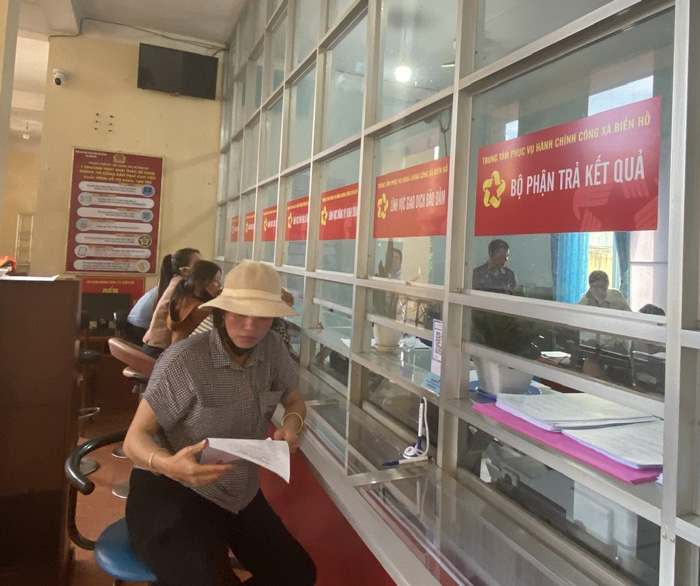On July 21, Mr. Nguyen Cong Hoa - Chairman of the People's Committee of Ia Chia commune, Gia Lai province - said that the commune is proposing to the province to request support and purchase additional equipment.
Ia Chia commune borders Cambodia, with more than 40 officers and employees working there. However, the commune currently lacks up to 20 computers for discussing.
Many of the commune's machinery and equipment are old, purchased more than 10 years ago, the technology is outdated, so the connection to the network is poor. When commune officials and employees connect to the network and website to do public administrative procedures, they have to wait, which is very time-consuming, said Mr. Hoa.
Similarly, Ia O commune also lacks up to 28 computers to serve the work of cadres and employees. Due to slow network connection, some people have to use their own computers and personal phones to hold online meetings, access administrative records and procedures online for people.

Mr. Phan Dinh Tham - Chairman of Ia O Commune People's Committee - said: "Traffic infrastructure and telecommunications equipment in the border area are still difficult, lacking, and wifi connection is weak. Therefore, some documents of the commune to be electronically signed to issue and direct are still delayed and have to wait. The commune has proposed that the Provincial People's Committee soon have a plan to purchase more computers and increase coverage of network operators."
After 3 weeks of implementing the two-level government model, the leaders of Gia Lai province assigned cadres to grasp the actual situation in the localities.
Gia Lai province currently has 110 communes and 25 wards, of which 9 communes are not implementing the arrangement, including: Ia O, Nhon Chau, Ia Tach, Ia Mo, Ia Pon, Ia Nan, Ia Dom, Ia Chia and Krong. These communes are mainly located along the border of Gia Lai province, in remote areas.
At a recent working session with border communes, Mr. Pham Anh Tuan - Chairman of Gia Lai Provincial People's Committee - requested communes to promote their potential and strengths in land, agricultural production, and help people escape poverty.
The province will allocate resources to invest in developing border communes, improving the material and spiritual life of the people, ensuring political security and social order.











